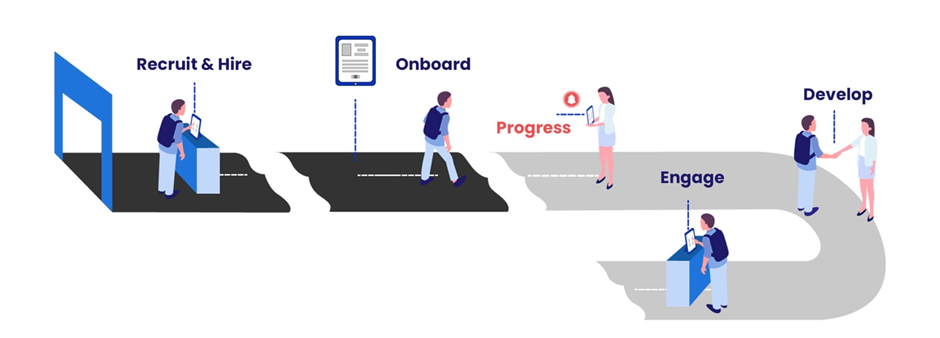In the ever-evolving landscape of the modern workplace, talent assessments have transcended their traditional role in the hiring process. Today, they are instrumental throughout the entire employee journey – from hiring, training and development, succession planning and beyond. Cognitive, aptitude, skill, psychometric, and personality assessments offer a multi-faceted approach to understanding and leveraging employee potential. Let’s delve into how these tools can be strategically utilized at each stage of an employee’s journey within an organization.
Hiring: The Foundation
The journey begins with hiring, where talent assessments play a critical role in identifying the right candidates. Cognitive and aptitude tests gauge problem-solving abilities and learning potential, while skill assessments measure specific job-related competencies. Psychometric and personality tests, on the other hand, help understand a candidate’s behavioural traits and cultural fit. By combining these assessments, organizations can make data-driven decisions, reducing the risk of costly hiring mistakes.
Training Needs Analysis: Bridging the Gap
Once on board, employees’ growth trajectory depends heavily on targeted training and development. Here, gap analysis becomes crucial. By employing the same assessments used in hiring, organizations can identify areas where employees may need more development. This targeted approach ensures that training is not a one-size-fits-all solution but a strategic tool tailored to individual needs, maximizing ROI on training initiatives.
Reskilling and Upskilling: Adapting to Change
In a rapidly changing business environment, the need for reskilling and upskilling is more pronounced than ever. Talent assessments provide insights into employees’ existing skills and their potential to learn new ones. This information is vital in preparing the workforce for emerging roles and technologies, ensuring the organization stays ahead of the curve.
Promotions: Recognizing the Right Talent
When it comes to promotions, relying solely on tenure or subjective judgments can be a recipe for discontent and inefficiency. Objective talent assessments offer a fair, transparent, and effective way to identify employees who are truly ready for more significant responsibilities. Cognitive and leadership potential assessments can reveal who has the aptitude for higher-level strategic thinking and leadership roles.
Identifying High Potentials: Securing the Future
High-potential employees are an organization’s future leaders. Identifying them early and accurately is key to long-term success. Talent assessments that measure cognitive abilities, ambition, leadership qualities, and strategic thinking can help pinpoint these individuals. Once identified, organizations can invest in specialized development programs to nurture their growth.
Succession Planning: Ensuring Continuity
Succession planning is critical for organizational continuity. Talent assessments provide a deep understanding of employees’ competencies and potential, which is essential when identifying candidates for critical roles. These tools ensure that the process of succession planning is not reactive but a strategic effort aligned with the organization’s long-term goals.
Continuous Development: A Never-Ending Journey
Finally, the employee journey is not linear but a continuous cycle of development. Regular assessments can track employees’ growth, adapt development plans, and ensure that their skills and roles evolve in tandem with the organization’s changing needs.
Talent assessments are indispensable tools in the HR toolkit, offering valuable insights at every stage of the employee journey. By leveraging these assessments, organizations can ensure they not only attract the right talent but also nurture and retain them effectively. This holistic approach to talent management not only drives individual career growth but also propels organizational success in an ever-competitive business world.








